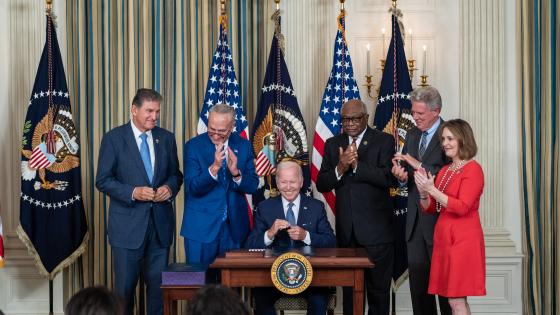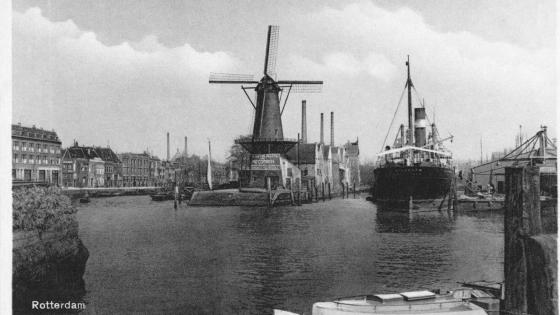Many have called on G20 leaders to resist protectionism. Jagdish Bhagwati (2009) early on called on President Obama to fight protectionism right away or live to see the virus spread beyond control; Buiter and Sibert (2008) labelled candidate Obama’s policies as protectionist, reactionary, and economically unsound. Yet, notwithstanding world leaders’ repeated pledges to keep on fighting – most recently at the G20 Pittsburgh Summit – the protectionist virus has started to spread (Evenett 2009). A point less often made is that the protectionist virus attacks more than our prosperity; it risks attacking our very freedom.
Basic economic argument
With freedom of exchange, individuals are able to produce more and achieve a higher income level than would otherwise be possible. Since Ricardo (1817), most economists would agree that “there is essentially only one argument for free trade or freer trade, but it is an exceedingly powerful one, namely: free trade promotes a mutually profitable division of labour, greatly enhances the potential real national product of all nations, and makes possible higher standards of living all over the globe” (Samuelson 1973).
Trade liberalisation promotes economic growth by raising productivity through static and dynamic gains from trade. Static gains accrue through a more efficient allocation of resources as lower trade restrictions reduce the bias against investment in the tradable goods and services sectors of the economy1 and through economies of scale to producers of exported goods and services who benefit from increased market opportunities abroad. Dynamic gains accrue from faster rates of capital accumulation and technical progress that are encouraged when the economy is opened up to increased competition as well as to the flows of ideas, knowledge and innovation from abroad. Openness is particularly important for developing economies and less populous countries.
These propositions have been confirmed by an amount of seminal empirical research showing that more open trading systems experience higher rates of economic growth (Dollar 1992, Sachs and Warner 1995, Edwards 1998, Frankel and Romer 1999).
Trade liberalisation can promote not only faster economic growth but also more robust economic growth that helps improve the economy's resilience to external shocks and its capacity to service external debt. In particular, it was observed that the predictability provided by the multilateral trading system helped ensure that the emerging markets' financial crisis of the late-1990s did not degenerate into a trade shock for the economies that were affected (WTO 2002). Notwithstanding the protectionist juggernaut currently threatening world trade, history will hopefully repeats itself.
The basic political argument
Yet, freedom of exchange is not merely a means to spur economic growth and reduce poverty; it is also a way to advance human liberties, as I argue in a recent book (Chauffour 2009).
Restrict trade and our very freedom comes under attack. Trade policy delineates the freedom of exchange across national boundaries, which, in turn, impact directly on people’s freedom and development. Provided that the exchange between two parties does not adversely impact on a third party, any restriction on the ability of individuals to enter into a mutually beneficial exchange – domestic or international – should be regarded as a danger to individual freedom and economic growth.2
Ironically, while trade liberalisation and the pursuit of open trade are often presented as a threat to human rights by anti-globalisation activists and others,3 it is the very restrictions and discrimination that liberalisation seeks to remove that constitute the true threat to human rights. Trade restrictions in the form of tariff and non-tariff barriers (e.g., quotas, licenses, marketing restrictions, exchange rate controls) have the effect of limiting, reducing, or delaying the ability of individuals to pursue their economic goals and constitute a threat to the principle of freedom of exchange and non-discrimination.
The degree to which government hinders access to the free flow of trade discourages individuals from applying their talents and skills in a manner that they know or believe will be better for them. In addition, it limits consumers’ choices, thereby also limiting their well-being. Restrictions on freedom of exchange give rise to rents and rent-seeking behaviours of a variety of forms. Even when rent-seeking does not directly take the form of bribery, corruption, smuggling, or black markets, it is detrimental to economic growth, as people use their energy and creativeness to compete for rents instead of adding value.4 These threats are not limited to the freedom to trade in goods and services but also encompass restrictions on the free flow of capital, technological knowledge, know-how, and ideas more generally.
Freedom of exchange and other freedoms: The evidence
Freedom of exchange is also a conduit to promote all other dimensions of freedom. Openness to trade likely begets a higher rate of interchange of ideas and information among countries (Sykes 2003). In turn, as people in nations with fewer rights and freedoms become aware of conditions elsewhere, internal pressures for improvement may grow. Isolated societies, by contrast, may be more subject to human rights abuses.
Empirical evidence tends to confirm the positive link between openness of trade, the level of civil liberties and political rights, and democracy (Hamilton 2002). Looking at the spatial dependence in economic freedom between geographic neighbours and trade partners, Sobel and Leeson (2007) found evidence that economic freedom does indeed spread through both geography and trade, though modestly. By fighting protectionism and liberalising their trade with foreign nations, economically free countries maximise the odds of exerting a positive impact on economic freedom in less free nations.
Fighting protectionism is not only an economic imperative; it is a moral responsibility to make sure that the darkest hours of the 20th century do not repeat themselves.
Footnotes
1 The increases in input costs caused by tariffs and non-tariff barriers are ultimately borne by companies unable to pass the increase on to the output price—the most important being export industries. As is well-known, a tax on imports is a tax on exports.
2 The free operation of open markets should only be restricted in the presence of non-pecuniary externalities, defined as the effects of a particular exchange on third parties that do not pass through the price system (e.g., pollution).
3 Open trade is often accused of being unfair, of exacerbating inequality, both within countries and at the international level, and of inciting a race to the bottom over matters such as social welfare standards, environmental standards, worker protection legislation, and so on.
4 Rent seeking refers to largely unproductive, expropriating activities that bring positive returns to the individual but not to society (Krueger 1974).
5 The authors estimate that during 1985-2000 countries captured about 20 percent of their average geographic neighbors’ and trading partners’ levels of, and changes in, economic freedom. Although these results provide evidence that freedom spreads, they also suggest freedom does not spread as strongly as suggested by the “domino theory” that underpinned American and Soviet foreign relations during the Cold War.
References
Bhagwati, Jagdish, (2009), “Obama Must Fight the Protectionist Virus”, Financial Times, 4 February, and VoxEU.org, 10 February.
Buiter, Willem and Anne Sibert (2008) “The dangerous protectionism of Barack Obama“, VoxEU.org, 26 February.
Chauffour, Jean-Pierre, 2009, The Power of Freedom: Uniting Human Rights and Development, Cato Institute, Washington D.C.
Dollar, David, (1992), “Outward –Oriented Developing Economies Really Do Grow More Rapidly: Evidence from 95 LDCs, 1976-95”, Economic Development and Cultural Change 40 (April): 523-44.
Edwards, Sebastian, (1998), “Openness, Productivity, and Growth: What Do We Really Know”, The Economic Journal 108 (447).
Evenett Simon J, (2009), “Broken Promises: a G20 Summit Report by Global Trade Alert”.
Frankel, Jeffrey and David Romer, (1999), “Does Trade Cause Growth”, American Economic Review 89 (3).
Hamilton, Carl B., (2002), “Globalisation and Democracy”, CEPR Discussion Paper 3653.
Krueger, Anne O., (1974), “The Political Economy of the Rent-Seeking Society”, American Economic Review, 64 (3).
Ricardo, David, (1817), On the Principles of Political Economy and Taxation, London: John Murray.
Sachs, J. D. and A. H. Warner, (1995), “Economic Reform and the Process of Gradual Integration”, Brookings Papers on Economic Activity: 1-118.
Samuelson, Paul A., (1973), Economics, 9th ed. New-York: McGraw-Hill/Irwin.
Sobel, Russel and Peter Leeson, (2007), “The Spread of Global Economic Freedom” in Economic Freedom of the World: 2007 Annual Report, Fraser Institute, Vancouver B.C.
Sykes, Alan O'Neil, (2003), "International Trade and Human Rights: An Economic Perspective". University of Chicago Law School, Olin Working Paper No. 188.
WTO, (2002), “The Relationship between Trade and Finance - A Review of Selected Literature related to Financial Crises in the 1990s”, Note by the Secretariat, WT/WGTDF/W/4.


